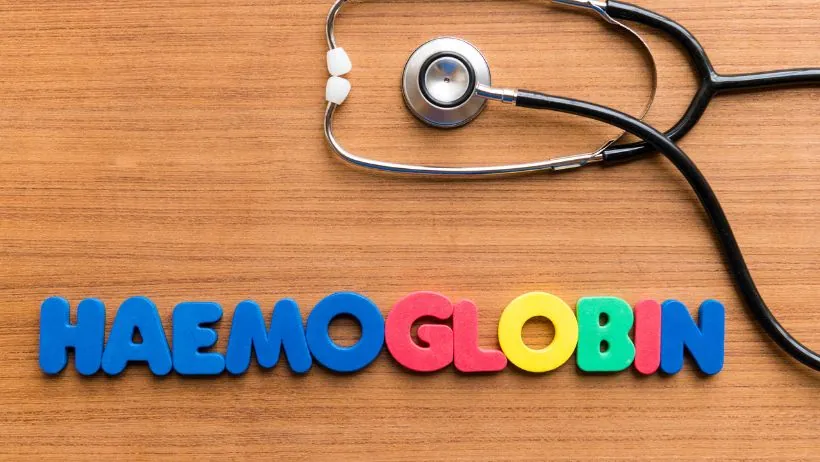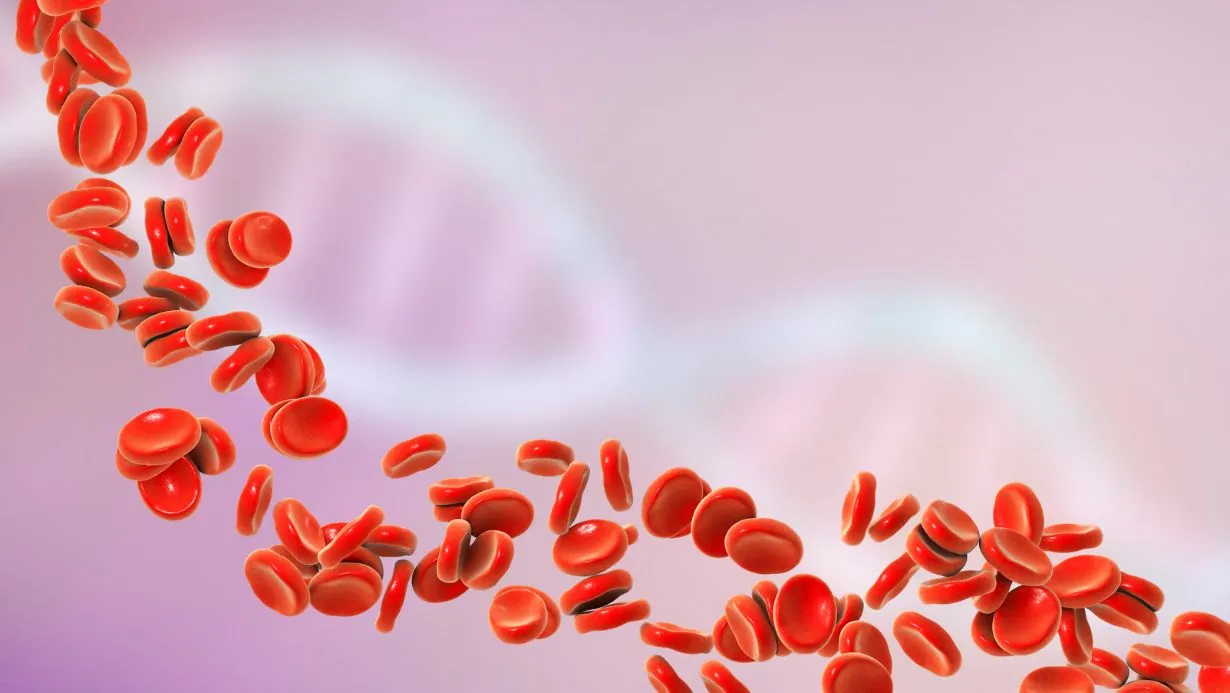Wondering how to increase haemoglobin? Haemoglobin plays a vital role in maintaining overall health and well-being. It is a protein found in red blood cells that carries oxygen from the lungs to the rest of the body. Low hemoglobin levels can lead to anemia, a condition characterized by fatigue, weakness, and shortness of breath.
Fortunately, there are various natural and medical methods to increase hemoglobin levels and improve your overall health. In this comprehensive guide, we will explore the importance of hemoglobin, factors causing low levels, and a wide array of strategies to boost your hemoglobin count effectively.
Understanding Hemoglobin
Hemoglobin is an iron-rich protein that gives red blood cells their color. Its primary function is to bind with oxygen in the lungs and carry it to tissues and organs throughout the body. Adequate hemoglobin levels are crucial for maintaining optimal oxygen levels in the body, which is essential for energy production and overall vitality.

Lets talk about the ways on how to increase haemoglobin.
Causes of Low Hemoglobin Levels
Several factors can contribute to low hemoglobin levels, including:
- Nutritional Deficiencies: A diet lacking in iron, vitamin B12, and folate can lead to decreased hemoglobin production. One of the ways on how to increase haemoglobin.
- Chronic Diseases: Conditions such as kidney disease, cancer, and inflammatory disorders can affect the body’s ability to produce hemoglobin.
- Blood Loss: Chronic bleeding due to ulcers, menstruation, or injury can deplete the body’s iron stores and lower hemoglobin levels.
- Genetic Factors: Certain genetic conditions can affect hemoglobin synthesis and lead to anemia.
- Poor Absorption: Disorders like celiac disease and Crohn’s disease can interfere with the absorption of nutrients, including iron, leading to low hemoglobin levels.
Diagnosis and Medical Intervention
If you suspect low hemoglobin levels, it’s essential to consult a healthcare professional. A simple blood test called a complete blood count (CBC) can diagnose anemia and determine its severity. Depending on the underlying cause, the doctor may recommend specific treatments, such as iron supplements, vitamin B12 injections, or addressing the primary health condition. Let’s discuss the ways on how to increase haemoglobin.
Dietary Strategies to Increase Hemoglobin
- Iron-Rich Foods: Incorporate iron-rich foods into your diet, such as lean red meat, poultry, fish, lentils, beans, tofu, and fortified cereals. Consuming heme iron from animal sources enhances iron absorption.
- Vitamin C: Include vitamin C-rich foods like oranges, strawberries, kiwi, and bell peppers in your meals. Vitamin C enhances non-heme iron absorption from plant-based sources. One of the ways on how to increase haemoglobin.
- Folate and Vitamin B12: Consume foods high in folate, such as leafy greens, citrus fruits, and legumes, along with vitamin B12 sources like eggs, dairy, and fortified foods.
- Avoid Iron Blockers: Reduce the intake of coffee, tea, and calcium-rich foods during meals, as they can inhibit iron absorption. One of the ways on how to increase haemoglobin.
Lifestyle Changes for Healthy Hemoglobin Levels
- Regular Exercise: Engage in moderate aerobic exercises like walking, jogging, or swimming. Regular physical activity promotes better blood circulation and overall health. One of the ways on how to increase haemoglobin.
- Adequate Sleep: Ensure you get 7-9 hours of sleep each night. Quality sleep supports the body’s natural healing processes and boosts overall energy levels.
- Stress Management: Chronic stress can affect the body’s ability to absorb nutrients. Practice relaxation techniques such as meditation, yoga, or deep breathing exercises.
- Hydration: Drink plenty of water throughout the day to maintain proper blood volume and support overall bodily functions. One of the ways on how to increase haemoglobin. One of the ways on how to increase haemoglobin.
Herbal Remedies and Supplements
- Nettle Tea: Nettle tea is rich in iron and can be a natural way to boost hemoglobin levels. It also contains vitamin C, which aids iron absorption. One of the ways on how to increase haemoglobin.
- Yellow Dock Root: Yellow dock root supplements are known to increase iron levels in the blood. However, consult a healthcare provider before taking any herbal supplements.
- Pomegranate Juice: Pomegranate is rich in iron and other essential nutrients. Drinking a glass of fresh pomegranate juice daily can contribute to increasing hemoglobin levels. One of the ways on how to increase haemoglobin.
- Iron Supplements: If dietary changes alone are not sufficient, iron supplements prescribed by a healthcare provider can help raise hemoglobin levels. It’s crucial to take these supplements as directed to avoid iron overload, which can be harmful.
Some Other Information Affecting Haemoglobin
Types of Anemia:
- Iron-Deficiency Anemia: Explaining the most common type of anemia and its relation to low hemoglobin levels.
- Vitamin-Deficiency Anemia: Understanding how deficiencies in vitamin B12 and folate can lead to anemia and reduced hemoglobin production.
- Hemolytic Anemia: Discussing the condition where the body destroys red blood cells faster than it produces them.
Pregnancy and Hemoglobin:
- Understanding the importance of adequate hemoglobin levels during pregnancy for both the mother and the baby.
- Exploring the increased iron requirements during pregnancy and ways to meet these needs through diet and supplements.
Hemoglobin-Boosting Recipes:
Providing readers with nutritious and delicious recipes tailored to increase hemoglobin levels, incorporating iron, vitamin B12, and folate-rich ingredients. One of the ways on how to increase haemoglobin.
Impact of Chronic Diseases:
Discussing how chronic conditions like diabetes, cancer, and kidney disease can affect hemoglobin levels and outlining management strategies.
Iron Absorption Factors:
Explaining the difference between heme and non-heme iron and how various factors such as gastric acidity, cooking methods, and food combinations affect iron absorption.
Childhood Anemia Prevention:
Addressing the significance of preventing anemia in children, including the role of breastfeeding, introducing iron-rich foods, and periodic screenings.
Traditional and Alternative Medicine:
Exploring traditional remedies from different cultures that have been used for centuries to boost hemoglobin levels, such as Ayurvedic herbs and Traditional Chinese Medicine approaches.
Discussing the potential benefits and risks of alternative treatments like acupuncture and herbal supplements in managing anemia.
Athletes and Hemoglobin Levels:
Investigating the impact of intense physical activity on hemoglobin levels, including sports anemia, and providing strategies for athletes to maintain optimal iron balance through diet and supplementation.
Blood Donation and Hemoglobin Requirements:
Discussing the eligibility criteria for blood donation, emphasizing the importance of adequate hemoglobin levels for donors, and providing tips on how to maintain suitable levels for donation.
Monitoring Hemoglobin Levels:
- Guiding readers on how to monitor their hemoglobin levels at home using commercially available kits and interpreting the results.
- Stressing the importance of regular check-ups and blood tests, especially for individuals with predisposing factors for anemia.
Conclusion
Maintaining healthy hemoglobin levels is essential for overall well-being and vitality. By adopting a balanced diet, making lifestyle changes, and, if necessary, seeking medical intervention, you can increase your hemoglobin levels naturally. These are some ways on how to increase haemoglobin.
Remember that individual needs and responses to treatments vary, so it’s important to work closely with a healthcare professional to develop a personalized plan tailored to your specific requirements. With dedication and the right strategies, you can boost your hemoglobin levels, improve your energy levels, and enhance your quality of life.
